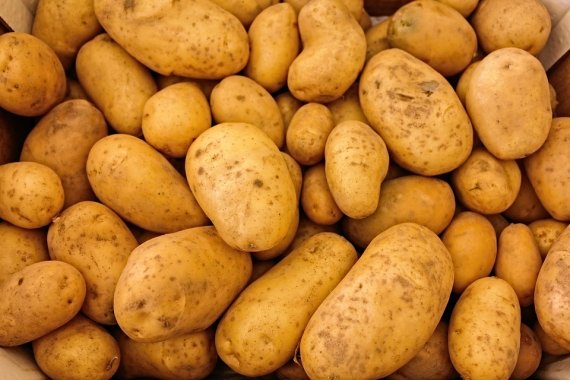Xuan Xu, PhD candidate at Plant Breeding, performed research on the digestibility of the starch contained in potatoes. This digestibility depends on, among other things, the amount of phosphate particles bonded to the starch, explains her copromotor Luisa Trindade. The more phosphate the potato contains, the harder it is to break down the starch. Xu discovered that there are specific enzymes that make the phosphate bond to the starch or, quite the opposite, make the phosphate detach.
She experimented with one of these enzymes: laforin. In humans, this enzyme detaches phosphate from glucose. Xu and Trindade expected it to elicit a similar reaction in potatoes, but to their surprise, the enzyme induced a higher level of phosphate in the starch. The enzyme turned out to be inactive during the formation of the starch in the potato, but the potato plant thought it was and as a reaction increased the bonding of the phosphate to the starch. Laforin revealed itself to be the key to producing diet potatoes.
GM technology
It is certain that the enzyme makes phosphate bond to starch in potatoes, which causes the spud to be harder to digest. Xu was able to successfully implement this property using genetic modification. But as GM technology is somewhat problematic in food crops, Trindade is looking for other possibilities. ‘Perhaps we will be able to find a protein in potato plants with the same effect on the plant as laforin.’
This enzyme stimulates the plant to make more phosphate bond to starch, but what is that stimulus? ‘That is a question for the next PhD candidate’, says Trindade. Xu’s successor will search for the effector of this reaction and will perform research on how the bonding of phosphate can be stimulated in a different way than through genetic modification.
Lose weight
If they manage to do this, you could get a potato that is hard to digest, which could be interesting for people who want to lose weight. By using this same principle, you could also develop a potato that is very easy to digest, for example for elderly people in rest homes who have trouble eating.
Xuan Xu defended her PhD thesis on 14 October. Het promotor was Richard Visser, professor of Plant Breeding.

